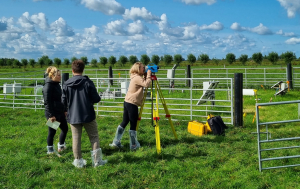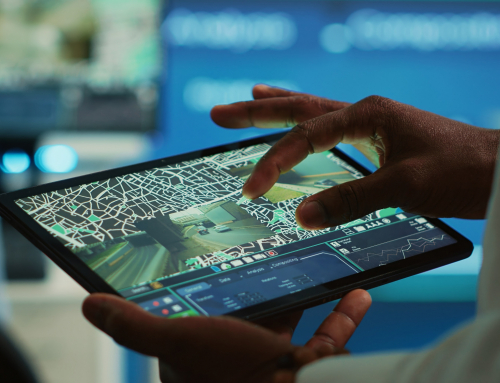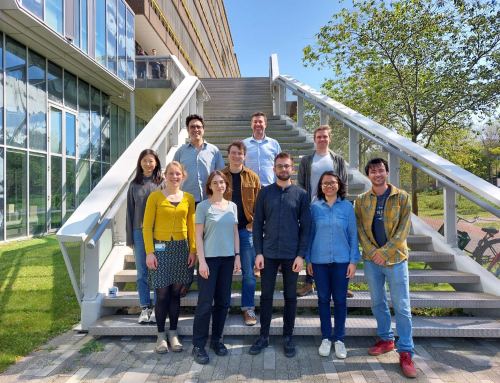The highly anticipated GATHERS Summer School 2023, hosted by the Department of Geoscience and Remote Sensing at Delft University of Technology (TUDelft) took place from August 28th to September 1st. This event brought together an international cohort of young enthusiasts eager to delve into the realms of geodetic and imaging techniques for Earth’s surface monitoring and seismic risk assessment.
Building upon the success of the first edition held in Wroclaw, Poland, in 2022, the GATHERS Summer School in Delft, the Netherlands, continued its mission to educate and inspire the next generation of geoscientists. The week-long program combined theoretical and practical
knowledge, focusing on three primary Earth observation methods central to the GATHERS project:
- Interferometric Synthetic Aperture Radar (InSAR)
- Light Detection and Ranging (LiDAR)
- Global Navigation Satellite System (GNSS) seismology
Leading experts from prestigious institutions around Europe, including TU Delft, Sapienza University of Rome, Technical University of Vienna (TU Wien), and Wroclaw
University of Environmental and Life Sciences (UPWr), shared their expertise with the participants. The intensive curriculum covered theoretical foundations and practical applications of these techniques, with a special emphasis on studying surface changes resulting from extensive anthropogenic activities like resource extraction.
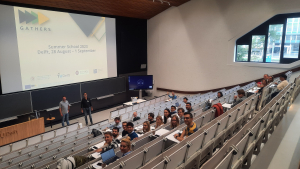
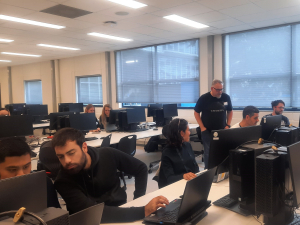
As part of the social program, attendees enjoyed a guided tour of the historical centres of Delft and Amsterdam, which added a cultural dimension to their educational experience. The guide of this unique tour, professor Ramon Hanssen from TU Delft, not only shared historical insights but also intertwined them with geodetic knowledge. Participants learned about local historical figures associated with geodesy, measurements related to determining water levels in reference to sea level, and the pioneering surveys that contributed to the establishment of the European Vertical Reference Frame (EVRF).
Additionally, the program included a visit to SKYGEO, a company specializing in InSAR data processing. SKYGEO’s staff provided insights into the practical applications of InSAR, demonstrating how this information is utilized not only in academia but also in various industries.
As an impartible component of the summer school, field exercises took place on the TU Delft test site in a farm in Zegfeld. Participants had the opportunity to see a GNSS reference station integrated with a SAR reflector, also SAR active transponder. The participants had the opportunity to take part in practical geodetic measurements such as geometric levelling, ground-based and aerial laser scanning measurements in Zegfeld and Amsterdam.
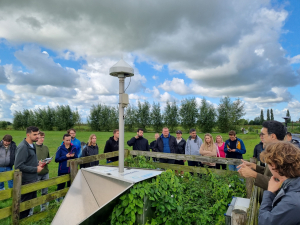
The students also got tasks to work on in teams covering different questions in the School’s topics of InSAR, LiDAR and GNSS seismology. The presentation of the teams’ results crownеd their work at the end of the school. The successful accomplishment granted the trainees 2 ECTS points.
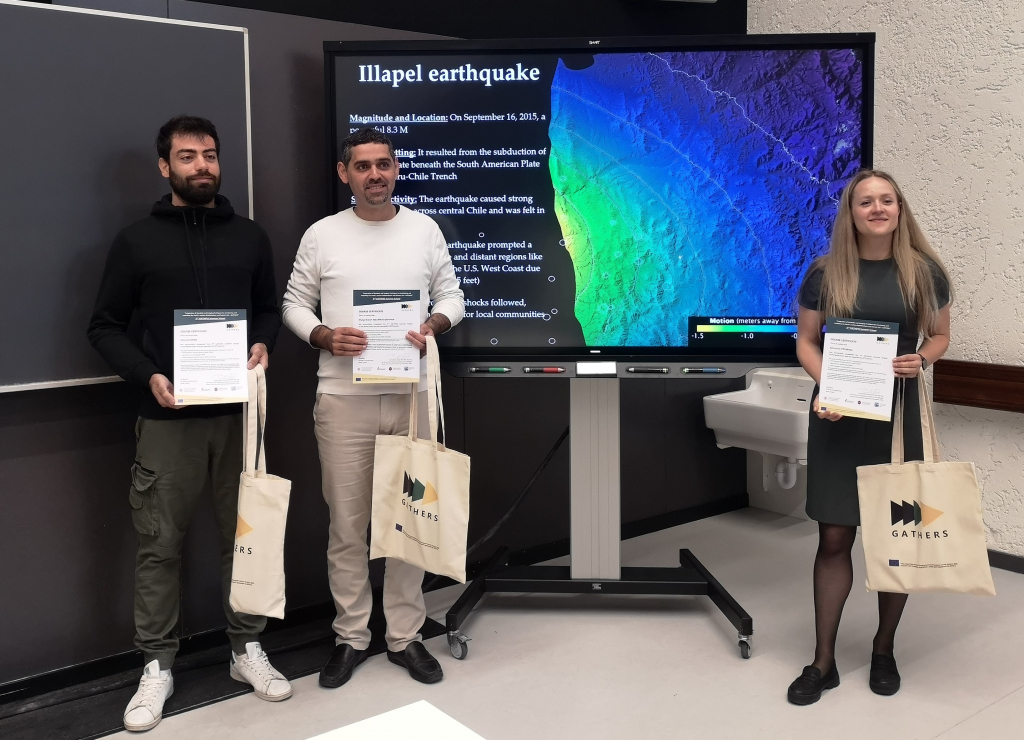
The culmination of the school was the visit to the impressive Space Expo museum, the visitor centre of the European Space Agency’s (ESA) European Space Research and Technology Centre (ESTEC) in Noordwijk, with its exposition about the history of space travel, insides on designing and building space missions on Earth, as well as an access to a full-scale model of the International Space Station (ISS).
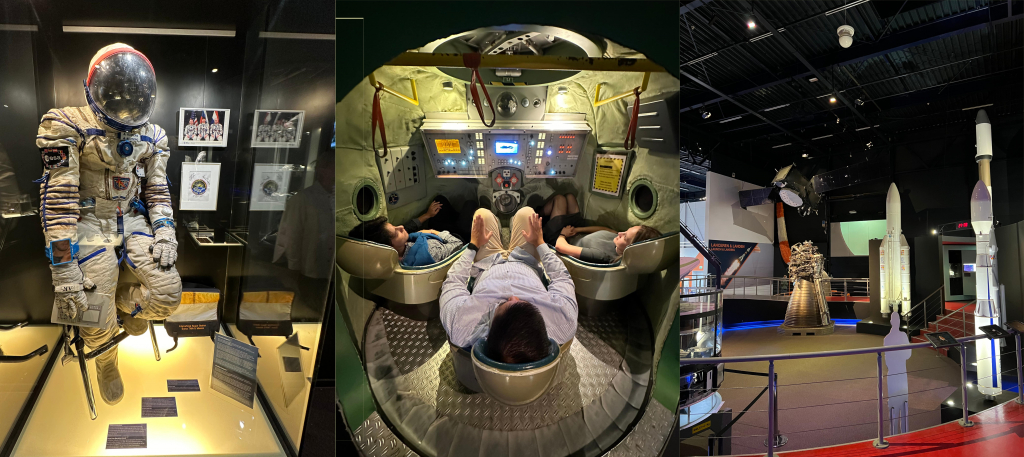
The 2nd GATHERS Summer school brought to all of us valuable experience, new knowledge and skills, but mostly built new fantastic friendships.
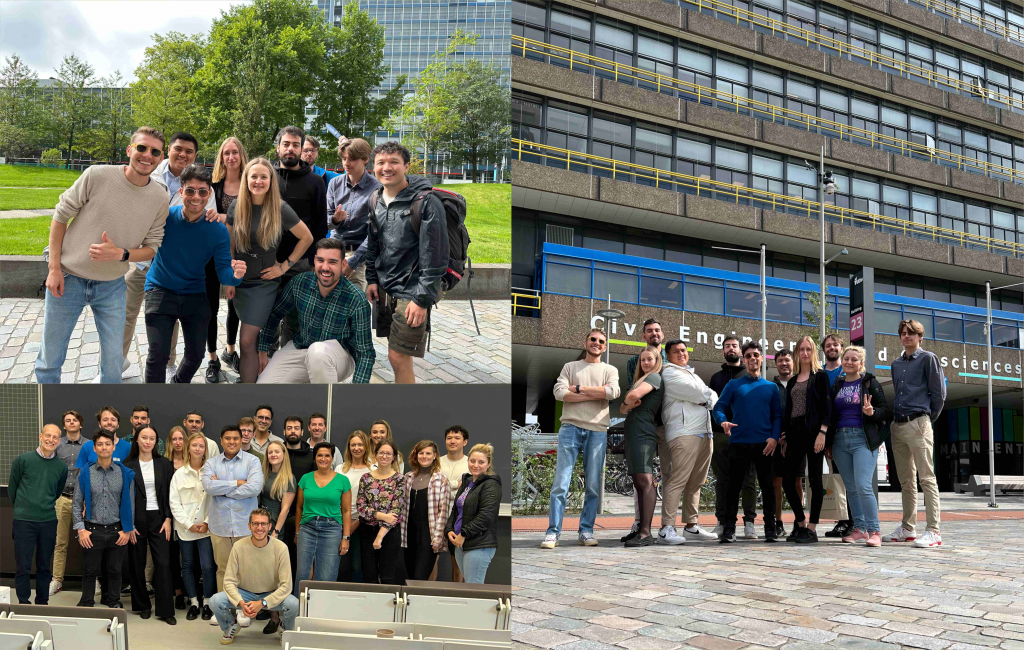
More about the 3rd GATHERS school edition taking place at 12-16th February 2024 in Rome, Italy. The event in Rome was followed by a Hackathon on GNSS seismology during the weekend 17-18 February 2024.


